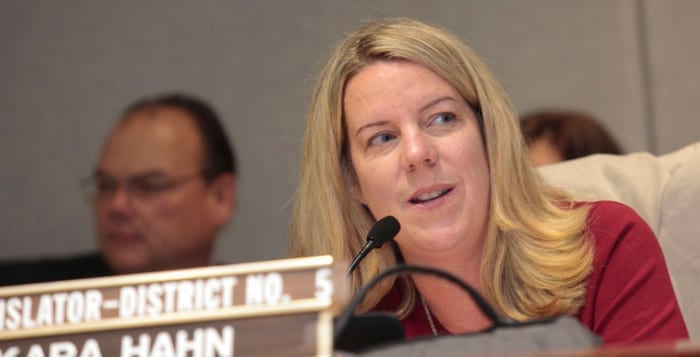County could block cleaners from using ‘organic’ label

One North Shore lawmaker is cleaning up the language of Suffolk County’s dry cleaners.
Dry cleaning businesses will no longer be allowed to advertise their services as organic when describing the solvents or methods used in production, thanks to recently approved legislation from Suffolk County Legislator Kara Hahn (D-Setauket). And if they get caught, business owners could face fines of $500 on the first offense to $1,000 on the second, the legislator said.
“A consumer chooses an ‘organic’ cleaning method with the belief that this option is better for his or her health and our environment,” Hahn said in a statement. “Without a universally accepted definition of what constitutes organic services, consumers go through the wringer when making their decisions based upon subjective standards that, in some cases, can be completely contrary to their intentions.”
Under Majority Leader Hahn’s bill, no professional garment cleaning establishment operating in the county will be allowed to describe its services as “organic” in advertising or signage. In a statement, Hahn said the term organic is found in many industries, including dry cleaning, and has come under increased public scrutiny as regulators have not established clear criteria governing the word’s usage in consumer goods and services.
“It is very important that customers understand terms used in dry cleaning advertisements,” said Beth Fiteni, owner of Green Inside and Out Consulting, an advocacy organization committed to empowering the public to find healthier alternatives to common toxins, also in a recent statement. “Organic in this context is a technical term, and does not mean chemical-free. This legislation in Suffolk County helps address possible confusion.”
In her legislation, Hahn said one of the most harmful chemicals used in the dry cleaning industry, perchloroethylene — also known as perc — contains carbon molecules. Carbon is a naturally occurring element and perc is sometimes advertised as being organic, despite its detriment to the environment.
“In some instances there is a significant disconnect between the term organic that has become part of the vernacular and the scientific definition used by industry,” Hahn said. “I want to ensure that Suffolk consumers are making decisions based on intention rather than semantics.”
The state Department of Environmental Conservation has already approved several alternatives to perc for use in non-vented, closed-loop dry cleaning machines that are equipped with a refrigerated condenser, conform to local fire codes and meet the additional specifications required by the alternative solvent manufacturer.
Suffolk’s bill would be nullified should a standard be adopted by state or federal regulatory agencies.
The only thing preventing the bill from becoming official is the absence of a signature from County Executive Steve Bellone (D). Once signed, cleaners would have approximately 60 days to come into compliance.






